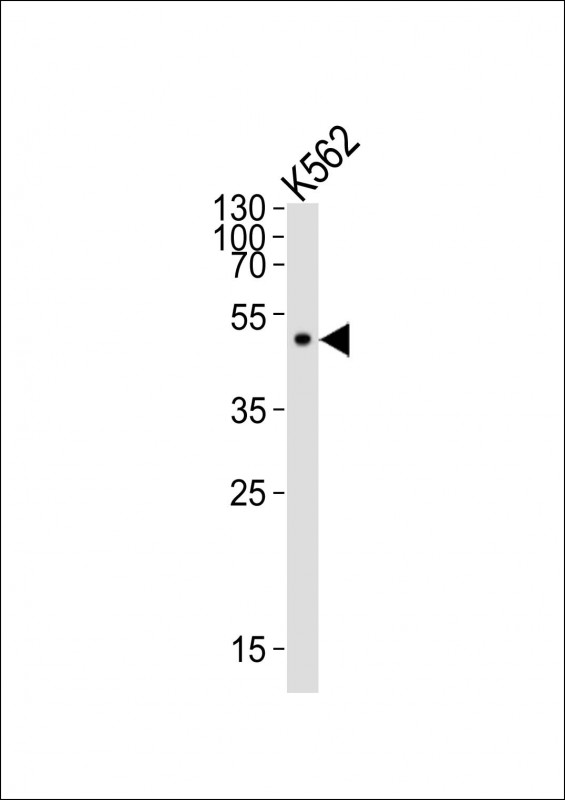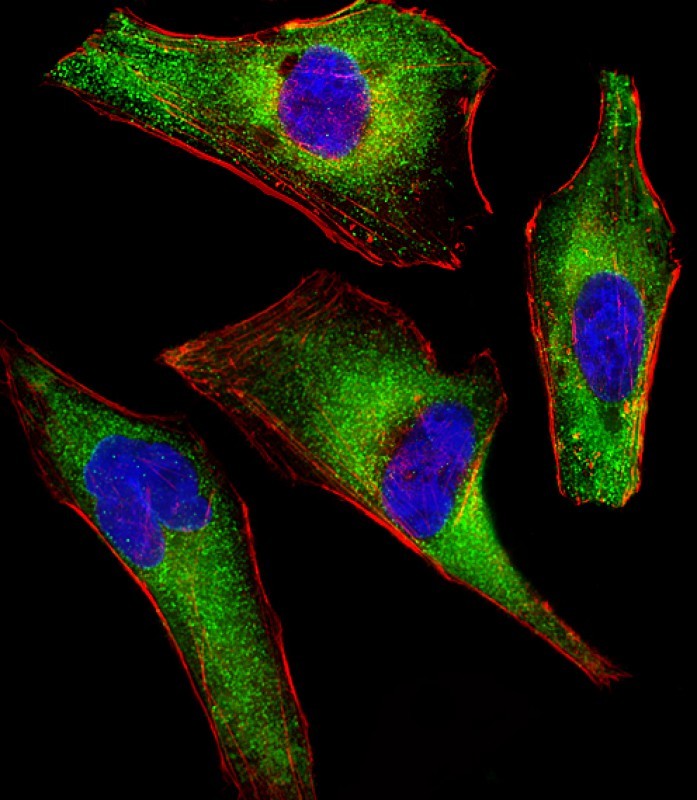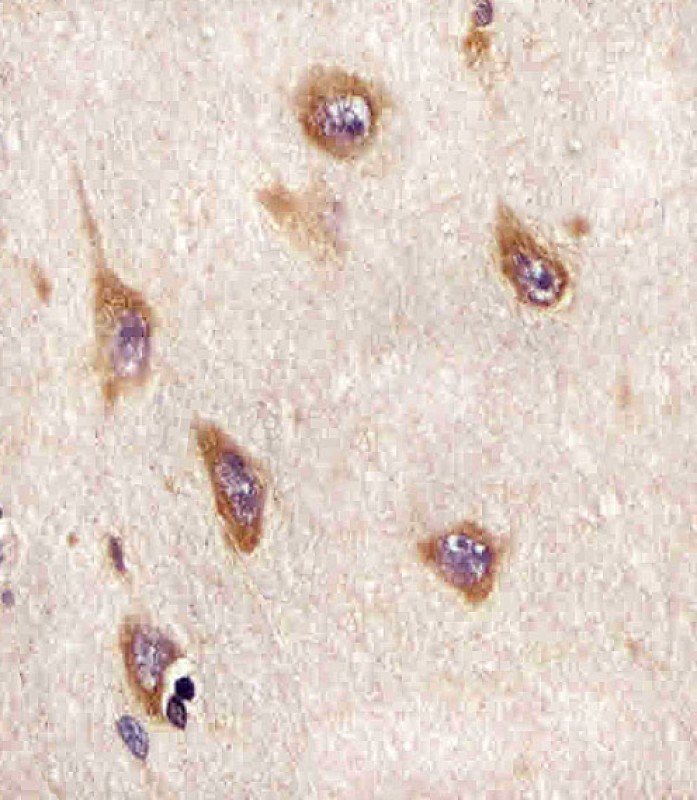



| WB | 1/500 | Human,Mouse,Rat |
| IF | 咨询技术 | Human,Mouse,Rat |
| IHC | 1/100-1/500 | Human,Mouse,Rat |
| ICC | 1/25 | Human,Mouse,Rat |
| FCM | 1/25 | Human,Mouse,Rat |
| Elisa | 咨询技术 | Human,Mouse,Rat |
| Aliases | Cysteine protease ATG4A, 3422-, AUT-like 2 cysteine endopeptidase, Autophagin-2, Autophagy-related cysteine endopeptidase 2, Autophagy-related protein 4 homolog A, hAPG4A, ATG4A, APG4A, AUTL2 |
| Entrez GeneID | 115201 |
| WB Predicted band size | 45.3kDa |
| Host/Isotype | Mouse IgG2b |
| Antibody Type | Primary antibody |
| Storage | Store at 4°C short term. Aliquot and store at -20°C long term. Avoid freeze/thaw cycles. |
| Species Reactivity | Human |
| Immunogen | This ATG4A antibody is generated from a mouse immunized with a recombinant protein. |
+ +
以下是关于ATG4A抗体的3篇参考文献示例(内容为虚构,仅供参考格式):
1. **《ATG4A regulates autophagosome formation through LC3 processing》**
- 作者:Marino G, et al.
- 摘要:研究通过ATG4A抗体检测发现,ATG4A通过切割LC3前体调控自噬体形成,并揭示其磷酸化修饰对酶活性的影响。
2. **《Characterization of ATG4 family members in mammalian autophagy》**
- 作者:Tanida I, et al.
- 摘要:利用特异性ATG4A抗体比较了ATG4家族成员的功能差异,发现ATG4A在饥饿诱导的自噬中具有独特作用。
3. **《A novel antibody-based assay for monitoring ATG4A activity in cancer cells》**
- 作者:Waguri S, et al.
- 摘要:开发了一种基于ATG4A抗体的检测方法,证明其在乳腺癌细胞中活性异常升高,提示其作为治疗靶点的潜力。
注:以上文献名为虚构示例,实际引用请通过PubMed或学术数据库查询真实研究。
The ATG4A antibody is a crucial tool for studying autophagy, a cellular degradation process essential for maintaining homeostasis. ATG4A (Autophagy-related protein 4A) is a cysteine protease belonging to the ATG4 family, which plays a pivotal role in autophagosome formation. Specifically, ATG4A processes pro-LC3 (Microtubule-associated protein 1A/1B-light chain 3) by cleaving its C-terminal glycine to generate LC3-I, a cytosolic form that conjugates with phosphatidylethanolamine (PE) to form LC3-II—a key marker of autophagosome membranes. This proteolytic activity is reversible, as ATG4A also delipidates LC3-II to recycle LC3 during autophagy flux. Dysregulation of ATG4A is linked to diseases such as cancer, neurodegenerative disorders, and metabolic conditions, making it a target for therapeutic research.
ATG4A antibodies are widely used in techniques like Western blotting, immunofluorescence, and immunohistochemistry to detect protein expression, localization, and activity in cells or tissues. They help elucidate autophagy mechanisms under stress, nutrient deprivation, or pathological conditions. Commercial ATG4A antibodies are typically raised against specific epitopes (e.g., human ATG4A N-terminal or catalytic domains) and validated for cross-reactivity in model organisms like mice or rats. Researchers rely on these antibodies to investigate ATG4A’s interactions with substrates (e.g., LC3/GABARAP proteins) or regulators (e.g., ATG3. ATG7) and to assess its role in disease progression or treatment responses. Proper validation via knockout controls is critical to ensure specificity in experiments.
×